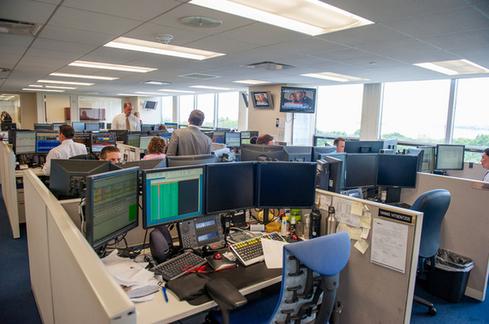11:24 AM
Pre-Trade Risk Management, Not Electronic Trading, Should Be Scrutinized
A trader error may have caused the Dow Jones Industrial Average to plunge nearly 1000 points yesterday. It is suspected that a Citi trade mistyped a trade involving Procter & Gamble, calling for a sales of several billion shares, instead of several million shares.Politicians have been swift to put the blame on high-frequency trading. Sen. Ted Kaufman, a Democrat from Delaware, said the U.S. stock market's tumble "must be carefully reviewed and placed within a meaningful regulatory framework soon."
"The potential for giant high-speed computers to generate false trades and create market chaos reared its head again today," he added in a statement. The "battle of algorithms" is not understood or even "remotely transparent" to the SEC.
But industry experts are still waiting for a full explanation of what really caused the market to plunge.
"Yesterday was obviously a dark day for electronic trading, but racing to conclusions without the facts is foolhardy," says Paul Zubalake, senior analyst at Aite Group.
Still, the real issue here is pre-trade risk management, rather than high frequency trading, he says.
"If someone typed in a B instead of an M, everyone is blaming high-speed trading, but pre-trade risk management is the real problem here. If a "fat finger" problem can happen at a firm, then there is obviously an issue with their pre-trade risk management," he says.
Firms should be looking at what they're doing across all asset classes. "What are clients doing before they enter orders? Exchanges have limits as to how many can hit the market. If you put in 100,000 lots, they won't accept it," Zubalake points out.
"Can algos throw [those numbers of orders] in a short time? Sure. If so, that's where you have pre-trade risk management to stop it from happening. That's the biggest issue."
Zubalake agrees that speed is a concern too. But if you slow the market down, everyone will have to live with consequences, he says.
And given Wall Street's obsession with speed and the low latency race, it's unlikely anyone will want to take even a pause to breathe.If a "fat finger" problem can happen at a firm, there is obviously an issue with their pre-trade risk management, says Aite Group's Paul Zubalake. Melanie Rodier has worked as a print and broadcast journalist for over 10 years, covering business and finance, general news, and film trade news. Prior to joining Wall Street & Technology in April 2007, Melanie lived in Paris, where she worked for the International Herald ... View Full Bio
























